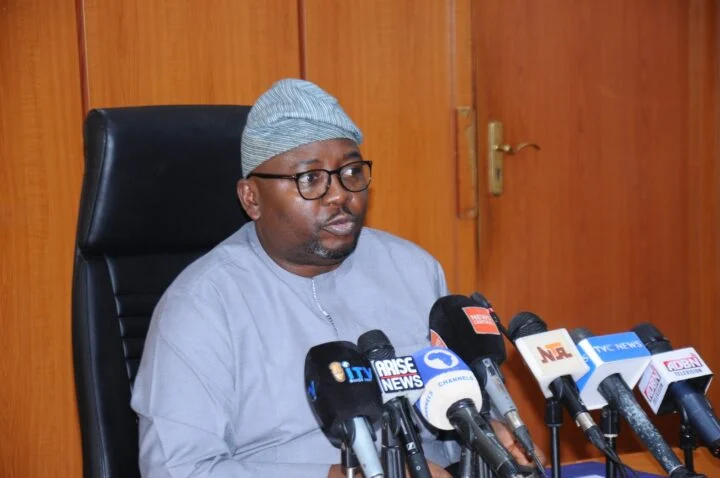The Minister of Power, Mr. Adebayo Adelabu, stated on Monday that the Federal Government has yet to find a permanent solution to the frequent collapse of the National Grid, which led to nationwide power outages multiple times in 2024.
Addressing senators in Abuja, Adelabu warned that there is no guarantee the grid won’t continue to experience collapses in 2025, citing persistent challenges such as insecurity, vandalism, and inadequate infrastructure as ongoing threats to the grid’s stability.
Adelabu appeared before the Senate Committee on Power to defend the 2025 power sector budget. He also disputed the widely reported figure that the National Grid collapsed 12 times in 2024, clarifying that the actual number was eight collapses, not 12.
“The grid collapsed eight times, not 12 as often reported,” he corrected, explaining that achieving a permanent end to grid collapses requires a concerted effort to tackle insecurity and the frequent vandalism of power infrastructure.
While acknowledging that the country faces significant challenges in securing the grid, Adelabu emphasized that the goal is to minimize collapses and restore the system as quickly as possible when they occur. “There is no guarantee that there will be no more grid collapses. What we can do is ensure they are minimized and quickly rectified,” he stated.
He also highlighted that the Ministry of Power has been working closely with security agencies to manage grid failures and expedite restoration efforts. In 2024, the ministry focused on stabilizing the grid and transmission infrastructure, with five of the eight grid collapses being full collapses and three partial. Of the five full collapses, three were caused by generation issues, while two resulted from vandalism.
One of the major challenges the ministry faces, according to Adelabu, is the destruction of key power supply lines due to insecurity. He noted that the Shiroro-Mando-Kaduna 330 kV line, which supplies northern Nigeria, remains down due to bandit attacks. In the interim, the region is reliant on the Uwaji-Apir-Makurdi 330 kV line, which also faces the threat of vandalism.
Adelabu revealed that repairs to these damaged lines have cost the Transmission Company of Nigeria (TCN) more than N9 billion, sourced from unbudgeted funds. He also described the efforts to secure these power lines, including military intervention, due to the extreme danger posed by criminal groups. “The first time we went to the site, it was like a civil war situation. The bandits had to be attacked from the air,” he added.
On a positive note, Adelabu reported an increase in power generation, which rose from 4,100 megawatts in 2023 to 5,528 megawatts in 2024, thanks to infrastructure improvements under the current administration.
To address insecurity further, Adelabu outlined plans to deploy solar-powered lights and Closed-Circuit Television (CCTV) cameras along highways to monitor the movements of vandals and other criminal elements. These initiatives are part of a broader project with a budget of N200 billion.
The minister also informed the committee that the power sector would require approximately N1.8 trillion in 2025 alone to address critical infrastructure projects, though he admitted that securing such a large amount of funding would be challenging.
Meanwhile, the Senate Committee, chaired by Senator Enyinnaya Abaribe, strongly criticized the performance of electricity Distribution Companies (DisCos), accusing them of failing to add value to the power sector since the privatization process began 11 years ago.
“What kind of privatization have we had? Senators are still the ones buying transformers for their communities,” Abaribe said, suggesting that the government should consider re-nationalizing the sector.
In defense of the DisCos, Adelabu argued that it would be unfair to judge all of them by the same standard. He pointed out that while some DisCos have made significant investments in infrastructure, others have been less proactive. “It’s better to assess each DisCo individually, based on their performance,” the minister concluded.


